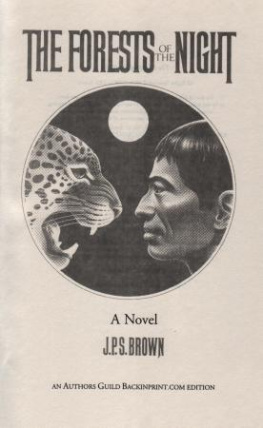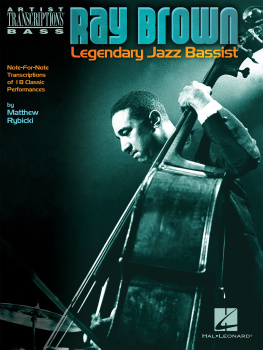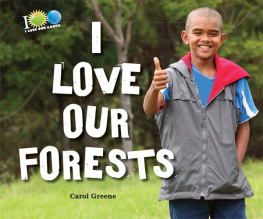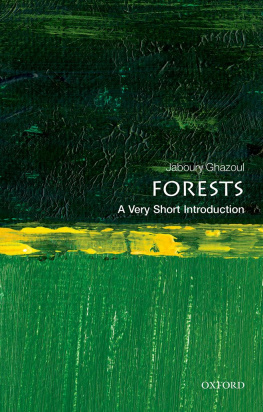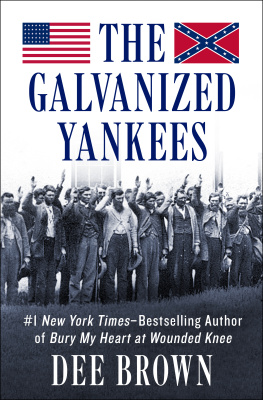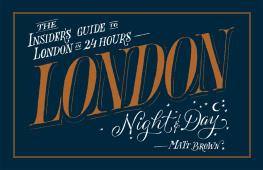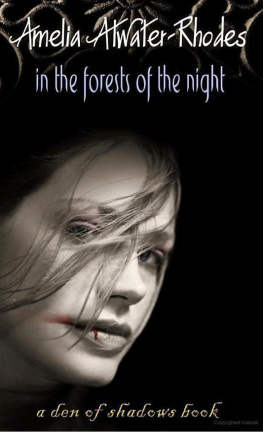J.P.S. Brown - The Forests of the Night
Here you can read online J.P.S. Brown - The Forests of the Night full text of the book (entire story) in english for free. Download pdf and epub, get meaning, cover and reviews about this ebook. year: 1974, publisher: The Dial Press, genre: Detective and thriller. Description of the work, (preface) as well as reviews are available. Best literature library LitArk.com created for fans of good reading and offers a wide selection of genres:
Romance novel
Science fiction
Adventure
Detective
Science
History
Home and family
Prose
Art
Politics
Computer
Non-fiction
Religion
Business
Children
Humor
Choose a favorite category and find really read worthwhile books. Enjoy immersion in the world of imagination, feel the emotions of the characters or learn something new for yourself, make an fascinating discovery.
- Book:The Forests of the Night
- Author:
- Publisher:The Dial Press
- Genre:
- Year:1974
- Rating:5 / 5
- Favourites:Add to favourites
- Your mark:
- 100
- 1
- 2
- 3
- 4
- 5
The Forests of the Night: summary, description and annotation
We offer to read an annotation, description, summary or preface (depends on what the author of the book "The Forests of the Night" wrote himself). If you haven't found the necessary information about the book — write in the comments, we will try to find it.
The Forests of the Night — read online for free the complete book (whole text) full work
Below is the text of the book, divided by pages. System saving the place of the last page read, allows you to conveniently read the book "The Forests of the Night" online for free, without having to search again every time where you left off. Put a bookmark, and you can go to the page where you finished reading at any time.
Font size:
Interval:
Bookmark:
The Forests of the Night
J P S Brown
1974
This book is for Rafael Rosa
The Onza
Inthe forests of the night,
What immortal handor eye
Could frame thy fearful symmetry? In what distant deeps or skies
Burntthe fire of thine eyes?
On what wings dare heaspire?
What the hand dare seize the fire? And what shoulder, & what art,
Could hoist the sinews of thy heart?
Andwhen thy heart began to beat,
What dreadhand? & what dread feet? What the hammer? what the chain,
Inwhat furnace was thy brain?
What the anvil?what dread grasp
Dare its deadly terrorsclasp? When the stars threw down their spears,
And waterd heaven with their tears,
Didhe smile his work to see?
Did he who made theLamb make thee? Tyger! Tyger! burning bright
Inthe forests of the night,
What immortal handor eye
Dare frame thy fearful symmetry? "The Tyger,"
byWilliam Blake
INTRODUCTION
THE FORESTS OF THE NIGHT
J.P.S.BROWN
Over a period of two generations I rode the horseshoetrails into the Sierra Madre Occidental in Mexico with my partnerRafael Russo to buy cattle. His hacienda was our headquarters and webought the cattle from his neighbors in the municipality of Chinipas,Chihuahua. Russo's vaqueros lived on his ranches with their familiesand worked al partido ,for wages and a share of the cheeses, and calf, bean, and corn cropsthe ranches produced. Russo and l lived with those families duringthe work. Every evening, I recorded the stories of the day incalendar notebooks that fit in a chaps pocket.
I came to know the crews and their families well andsaw their sons and grandsons grow to join us in the work. I startedmy first book Jim Kane four years after I began the journals. Twelve years later I beganthis book, The Forests of the Night .Martinillo the hunter depicted in this book was a Russo vaquero inhis middle 50s when I met him. He became my good friend. The storythat he and his companions told about his ordeal with a jaguar whospoiled on his own power became the foundation for this book. Hisstory is true, but I was not with him when it happened, so I filledthe pages of this book with the truth of my notebooks.
In the summer of 1971, I began to write this book atKier Byerley's beach cottage on the Sea of Cortez at Camauiroa insouthern Sonora. Kier was my model for Milligan in the book. Thestory took such a hold on me that one minute after I started writingit I found that I could not do anything else. My family and partnerssent out search parties for me before I left Camauiroa. In the fall Ihad to stop work on it to ship cattle to the U.S. I didn't try to getback to it until after the cattle crossed and I was able to return tomy home in Arizona.
Because of the hold that Forests had on me I put outan inordinate amount of physical and mental labor on it. In thosedays I wrote first drafts in longhand and subsequent drafts on aportable typewriter. In the mornings, for exercise, I tried to getoutside to cut fireplace wood and haul it in on my shoulder or atoboggan. The story would not allow me to leave it for more than twohours. Soon, I had to quit the woodcutting. I didn't stop work on themanuscript except to eat and sleep and could not sleep for more thantwo hours at a time. No matter how exhausted I was when I went to bedat a normal hour, the story always woke me at 2 a.m. I became thegood horse that was being worked to death. I've always done words asa contribution to something I don't understand. It's too much hardwork to do for myself. I'd be a fool to do it for myself. I likecowboying better. Writing takes too big of a hold on me, holds medown too long at a time and the pay is low and scarce. Cowboying hasnot paid near enough, either, but even that work has paid better thanwords have. At least, cowboying is fun and good for the constitution,most of the time.
My fiction is based on experience and evolves throughyears of cogitation. I don't try to write the story until theoriginal idea becomes a full grown truth that kicks at my heart toget out. Forests required 12 years of cogitation before I began thefirst paragraph, but I never stopped writing again until I finishedit. At work in my home in Arizona, I didn't notice the coming andgoing of Thanksgiving or Christmas of 1971. I know I ate and slept,but I don't remember any of it.
At sunup on New Years day, for the first time since Ihad returned home, I noticed that my wife and kids made noise. Ilearned to write in the city room of the El Paso Herald-Post, a dailynewspaper. A reporter writes thousands of words every day no matterwhat else happens around him. If he had to wait for inspiration, orfor writer's block to clear away, or for everybody around him to bequiet, he couldn't hold his job.
However, that New Years Day, the sounds of my familyall of a sudden drove me into a frenzy. I savaged my wife and kids,got in my airplane and flew to Navojoa, Sonora. I sent the airplaneback home to cut all responsible ties and drove to San Bernardo atthe foot of the Sierra Madre, then rode horseback seventeen hours toKier Byerley's Rancho Quemado on the high, spiny border betweenChihuahua and Sonora. Kier's caretaker Lico and his wife saw to myneeds while I worked night and day on the manuscript. I finished thehandwritten first draft in a month. I carried the manuscript in ablack, cardboard satchel back to Navojoa, got in touch with myfamily, and began to run and play in celebration. My family contactedCharley Jones, another border cattle trader who partnered with me andneeded my help to cross the border at Douglas, Arizona with anotherbunch of cattle . He flew the airplane back to Navojoa, joined mycelebration for awhile, then flew us back to Douglas.
I did not let go of the black satchel, even when halfa dozen friends joined us and we ran and played through every jointin Douglas and Agua Prieta. I felt so good about the book that everynow and then I had to open it up and read parts of it to myself. Anypart was just line.
Charley stayed two or three days, then flew home totake care of the business of our cattle. Ten days went by and onemorning I woke up in my room in the Gadsden Hotel to read from themanuscript and couldn't find it. I was having too much fun to worryabout it, but when Charley returned, I mentioned that I'd lost it. Hedid not take the news as lightly as I reported it. He had takenbreaks in our running and playing to read it and it had hooked him.The only way I could get him out of the room after he started readingit had been to put it back in the satchel and head for the corrals orthe saloons.
"We have to find it, Joe," Charley said."Where were you the last time you looked in the satchel?"
"You know, Charley, I was going to ask you aboutthat."
"You still had it when I left."
"Well, see, that narrows it down. When did youleave?"
"Ten days ago."
"There you have it. All we have to do is findout where I've been for the last ten days, a fact well known toeverybody in this town, and we'll find it."
"I'll round up the people who ran with us tolook for it, but what if we don't find it? What are you going to do?"
"Hell, I'll write another'n," I said.
Charley left me at the B and P Palace Bar and roundedup Bill Brown, John Maher, Harry McRory, Betty Hunt and Arnoldo theGadsden bartender and searched. I didn't go. In my celebratory stateI thought I had better things to do than worry about lost words. Iwas not celebrating the finish of a first draft of a new book. Icelebrated because I could now go home to my noble family which stillloved me enough to take me back, sleep a whole night through, andease my brain with cowboying again. I'd given it all up for too longand would probably never be able to sell the story, anyway. If it waslost I could write another one that was just as good as soon as I wasready to risk my life again, so I felt no urgent need to leave acomfortable stool in a fine old bar and get anxious about it.
Next pageFont size:
Interval:
Bookmark:
Similar books «The Forests of the Night»
Look at similar books to The Forests of the Night. We have selected literature similar in name and meaning in the hope of providing readers with more options to find new, interesting, not yet read works.
Discussion, reviews of the book The Forests of the Night and just readers' own opinions. Leave your comments, write what you think about the work, its meaning or the main characters. Specify what exactly you liked and what you didn't like, and why you think so.

